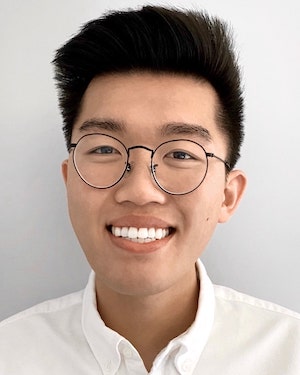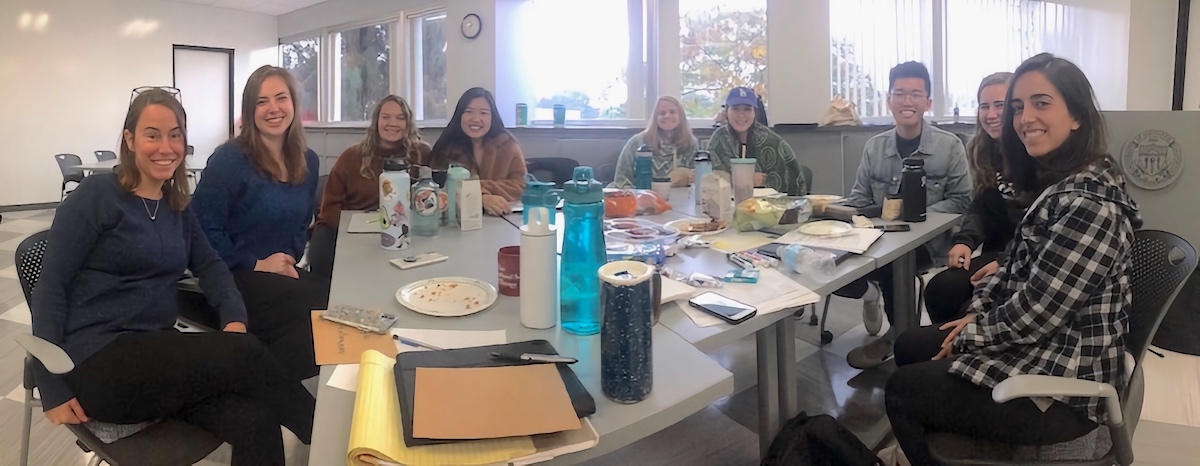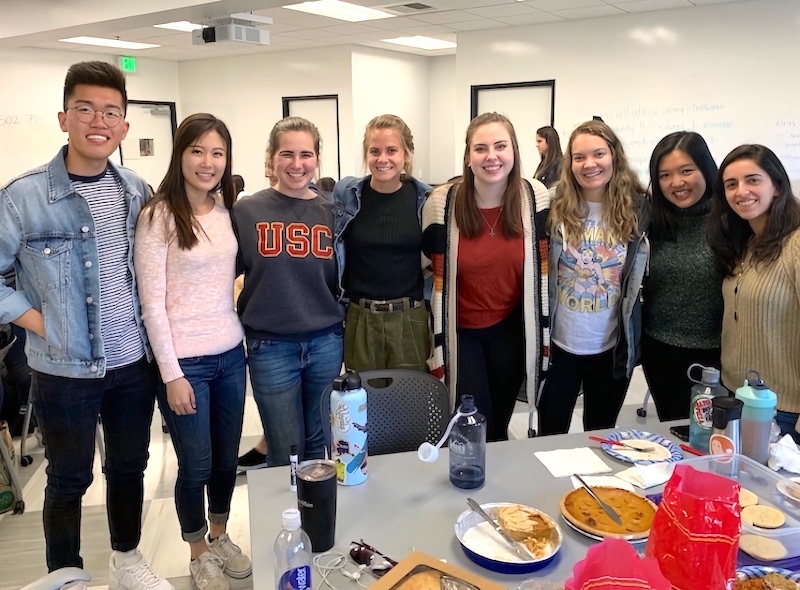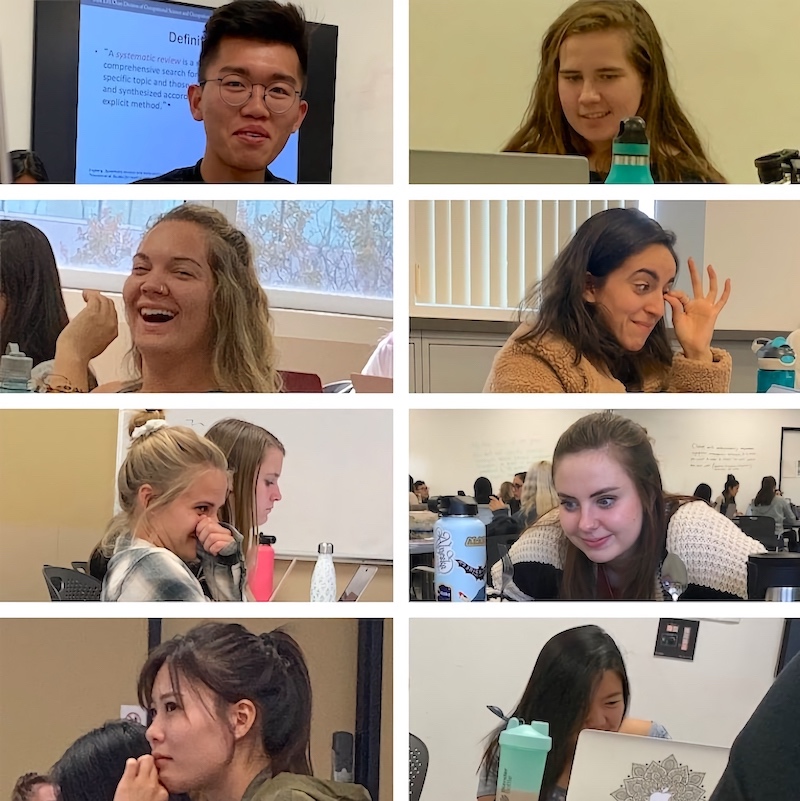My Mental Health Immersion Experience

September 7, 2020
by Calvin
I actually started off in the Mental Health Practice Immersion but, to be honest, I came into it with little to no interest in mental health. I just wanted to get it over with so that I could focus on the pediatric and adult rehabilitation immersions since my previous volunteer experiences were more related to those settings. However, throughout my time in the immersion, my perception of what occupational therapy’s role in mental health was had changed, and I realized that it’s just as important as other OT practice areas.
On the first day of class, I felt really nervous about going into this immersion because it was my first one ever. On top of that, I had no prior experience being in the mental health field, so my knowledge and insight were extremely limited. Nerves had really taken over during the first week, but my course instructors, Dr. Celso Delgado Jr. and Dr. Tessa Milman, were instrumental in reassuring and validating the entire cohort of our feelings. They said that the purpose of this course was to help introduce us to various perspectives so that we could understand the impact of mental health on occupational engagement, as well as the influence of occupation on recovery experiences. They also emphasized that it was okay to be feeling uncertain and sensitive to the experiences ahead, so I went in with an open heart and an open mind.
The mental health immersion incorporates a related Level I Fieldwork experience, in-service training, discussions with experts by experience, team debriefs and so many more opportunities. For my Level I Fieldwork, I was placed at a community mental health site and collaborated with mental health professionals, as well as peer specialists with lived experience. Now, this may sound surprising, but there was actually no occupational therapist at my site. According to the 2015 AOTA Salary & Workforce Survey, only 2.4% of respondents worked in the mental health practice setting. I was definitely shocked by this statistic, but it pushed me to really try and inform my site of the distinct value of OT. However, even with that ambition, I still yearned for guidance from an OT and, towards the beginning, I had a difficult time understanding what occupational therapy’s role was in mental health.
I had this internal conflict where I felt like I had to spread my OT knowledge and make all this positive change. However, I realized that Level I Fieldwork experiences are meant more to be spaces for students to learn, observe, and gain exposure to the area of practice. I also had this perception that OT’s role in mental health was restricted because it seemed similar to what social workers and case managers do. However, I discovered that this isn’t true and that occupational therapy actually plays such an extensive role in community mental health. Although there is collaboration with professionals from other disciplines, OTs have the scope and capacity to address occupational needs, promote functioning in the community, analyze performance skills, and provide unique assessments and interventions. Not having an occupational therapist to guide me through my first fieldwork experience was challenging, but I was grateful for the opportunity to connect curriculum material with my immersive experience. I was also thankful to have had a very involved interdisciplinary team by my side to advocate for the OT profession and they always tried their best to provide me with as many resources as possible!
Finally, I want to talk about my experience with my Cohort B lab team! Within these groups, we did a lot of team-based learning, discussed the course material, interacted with experts by experience, and debriefed about our fieldwork experiences. These people really made my experience in the mental health immersion and I honestly would not have gotten through this without them!
Team CarrOTs! | Pictured from left to right: Dr. Tessa Milman, Tess Mayer, Liz Broske, Bethany Hom, Morgan Smith, Helen Han, Sam Randolph, Adi Nisimov | Picture credits to our Expert by Experience 😊!
My favorite part about this course was the team debriefs, where we would each share about how our different Level I Fieldwork experiences were going. This opportunity opened up a safe space for us to learn about different mental health sites, share our challenges, provide advice and feedback, and just act as each other’s emotional support systems. An expert by experience also participated by sharing their thoughts and perspectives on how to approach certain situations at our respective sites. We were also incredibly grateful to have Dr. Tessa Milman as our team’s faculty supervisor and mentor. They each imparted such extraordinary mental health knowledge and expertise while also providing us with unwavering support throughout it all. These team-based discussions opened my eyes to the various potentials of mental health and how occupational therapy plays a special role in holistically addressing the needs and barriers of individuals experiencing mental health conditions.
This is us after we devoured the food from our Cohort B lunch potluck! Then we immediately went into a food coma haha!
In the beginning, I was nervous to start the mental health immersion because I had no prior experience or exposure. However, through this opportunity, I was able to challenge my implicit biases and build supportive relationships within my team and my fieldwork site. This empowered me to see the bigger picture and to develop a deeper understanding of the connection between occupational therapy and mental health. Regardless of what setting I go into, I know that I will be using my foundation of mental health knowledge in every endeavor I pursue!
Ending this post with appreciation collage for my team! Don’t worry, these pictures were taken during class breaks~
⋯
Next by tag Classes ⟩ Fieldwork ⟩
⋯
1. .(JavaScript must be enabled to view this email address) | February 24, 2021
My favorite part about this course was the team debriefs, where we would each share about how our different Level I fieldwork experiences were going. This opportunity opened up a safe space for us to learn about different mental health sites, share our challenges, provide advice and feedback, and just act as each other’s emotional support systems








